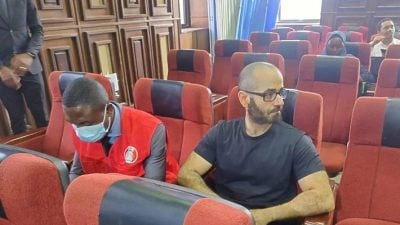The US government is continuing to put pressure on Nigeria to release an employee of Binance, the world’s largest cryptocurrency exchange, who has been detained since February and is reportedly facing deteriorating health conditions while in prison. According to officials from the US State Department, US Secretary of State Antony Blinken raised the issue directly with Nigerian officials in May, and since then, US diplomats, including the ambassador to Nigeria, have been actively advocating for the employee’s release.
The detained employee, identified as Mr. Gambaryan, aged 40, has been struggling with various medical issues during his time in custody, including malaria and complications related to a herniated disk. His family has raised concerns about the lack of adequate medical attention he has been receiving, which has led to a rapid decline in his health.
Efforts to secure Mr. Gambaryan’s release on humanitarian grounds have intensified in recent months, with the State Department repeatedly urging the Nigerian government to address his medical needs. However, there is a growing call for the US to take more decisive action in ensuring his release.
Mr. Gambaryan’s wife, Yuki, expressed her frustration in a recent interview, stating her displeasure at the possibility of Nigerian officials being welcomed in the US while her husband remains detained. Binance CEO Richard Teng has also demanded Mr. Gambaryan’s release, warning of the negative impact it could have on global businesses if he is not freed.
In a show of support, US lawmakers visited Mr. Gambaryan in a Nigerian prison in June, highlighting the critical health conditions he is facing and the inadequate care he is receiving. The situation has raised concerns about the precedent it sets for international businesses operating in Nigeria and the need for prompt action to address Mr. Gambaryan’s deteriorating health.
As the United Nations General Assembly approaches, the pressure is mounting on Nigerian officials to release Mr. Gambaryan and ensure that he receives the necessary medical attention. The ongoing efforts by the US government and other stakeholders demonstrate the importance of prioritizing the well-being of individuals caught in such situations.


